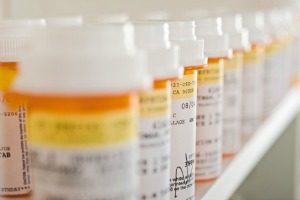ADHD Medication is Not an “Easy” Fix
In a discussion about late afternoon mood “crashes” and emotional management, my client Janine wondered aloud, “But I thought when she went on medication for ADHD it would make things easy for her. Isn’t that the point?” Download a free tip sheet "Recommended Treatment for ADHD: Medication & Behavior Management" for what's really recommended for your child or teen. Not quite, I explained. Plenty of parents believe that ADHD medications are meant to ‘fix’ ADHD. But the purpose of medication in the treatment of ADHD is not quite so simple. Medication is one of the many treatment options available for ADHD. It is a mechanism for Activating the Brain that can be quite effective for some kids, when managed well. However, it’s not the only mechanism available for parents to consider, and should not be seen as a panacea. Treating ADHD with medication should also include behavior management to enhance its effectiveness. We discuss the pros and cons of medication with families quite frequently, and support parents in whatever informed decision you choose on the subject. It’s a topic of considerable controversy, and almost always comes up – eventually – when working with a parent of a child with ADHD. No treatment – not even a pill – is going to make life “easy” to manage with ADHD. It’s critical for parents to understand that medication for ADHD – again, frankly, all treatment options – are not an EASY fix! It takes work and attention, and even then, it’s not always easy. Our kids struggle to focus and pay attention and inhibit their impulses. Even when they fall short of our expectations, they are generally working HARD to try to fulfill what’s expected of them. It’s just harder for them than it is for most kids. All the supports we put into place are an effort to make it easier – but believe me, that doesn’t make it easy! So let me repeat: The purpose of ADHD treatment, including medication, is to make things that are HARD for our kids a little bit EASIER to manage. I can’t count the number of times I’ve heard my kids say to me, “but Mommy, I was trying so HARD!” My middle child’s frustration was always evident when she knew how hard she’d worked and was disappointed that her grade didn’t reflect her effort (thanks to the triple whammy of ADHD, Dyslexia and Anxiety). Now, to a typical parent, her effort might not have looked particularly heroic. But when you consider what she’s struggling with just to get her brain to focus in the first place, it’s pretty amazing what she DOES accomplish! I recall picking up my daughter after school in 7th grade, when the hormones were raging and the school was not a good match for her. Every day, the van door was barely closed before the tears were too much for her to hold back. Every day, she needed to let it out at the end of the school day. Every day, for an entire school year, it was everything she could do just to show up, go to class, and try hard. Let’s just say, it took everything I had, too. Janine’s daughter is also exhausted at the end of the school day, worn-out from consciously trying to listen to the teacher and sit still in her chair. And she is more emotional than before, exhausted from the effort and frustrated in a new way. So what’s our job as parents, in the face of this understanding? There are many things that we can do. We can shift expectations in the afternoons and evenings, taking into consideration what our kids are dealing with. We can help them balance the load of schoolwork and home chores, making sure that they’re set up for success by getting enough sleep, eating well and exercising. And most of all, we can normalize their experience. Acknowledge that it’s not easy for them, and show compassion for how hard your kids are trying. At the end of the day, nothing is likely to be more motivating than that! Download a free tip sheet "Recommended Treatment for ADHD: Medication & Behavior Management" for what's really recommended for your child or teen.
Article continues below...
Treatment for your Child's ADHD
ADHD Medication is Not an “Easy” Fix
But Mommy, it’s Hard
What’s the Parent’s Job?
Treatment for your Child's ADHD

